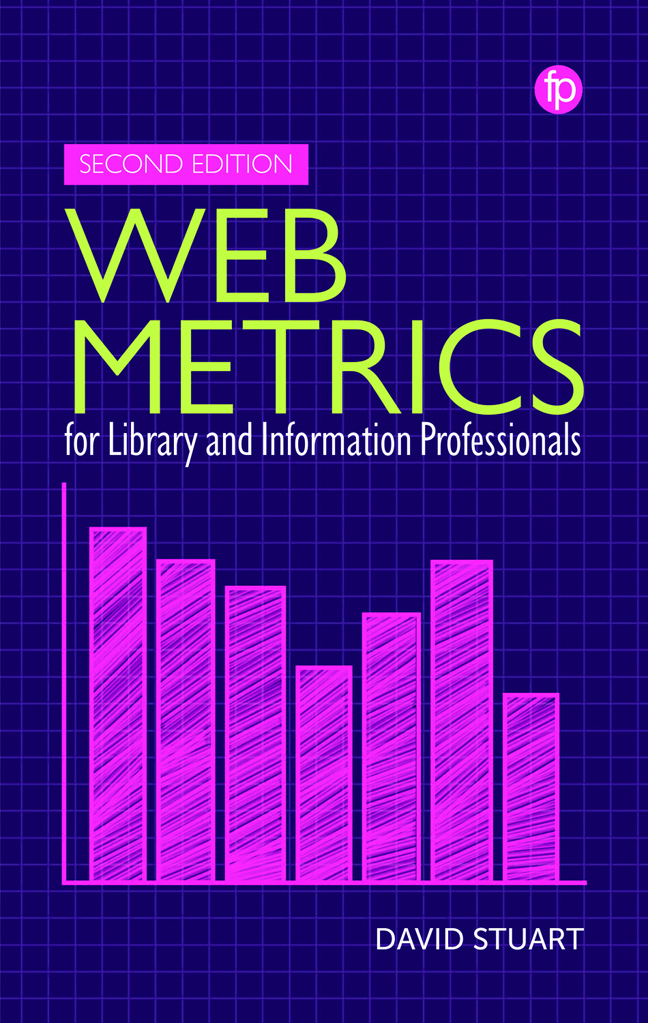Book contents
- Frontmatter
- Contents
- Figures and Tables
- About the Author
- Preface to the Second Edition
- 1 Introduction
- 2 Bibliometrics, Altmetrics, Web Metrics and Webometrics
- 3 Data Collection Tools
- 4 Evaluating Web Impact
- 5 Evaluating Social Media Impact
- 6 Relational Web Metrics and Social Network Analysis
- 7 Web Bibliometrics
- 8 Web Metrics for Data and Code
- 9 The Future of Web Metrics and the Library and Information Professional
- References
- Index
2 - Bibliometrics, Altmetrics, Web Metrics and Webometrics
Published online by Cambridge University Press: 20 December 2023
- Frontmatter
- Contents
- Figures and Tables
- About the Author
- Preface to the Second Edition
- 1 Introduction
- 2 Bibliometrics, Altmetrics, Web Metrics and Webometrics
- 3 Data Collection Tools
- 4 Evaluating Web Impact
- 5 Evaluating Social Media Impact
- 6 Relational Web Metrics and Social Network Analysis
- 7 Web Bibliometrics
- 8 Web Metrics for Data and Code
- 9 The Future of Web Metrics and the Library and Information Professional
- References
- Index
Summary
Introduction
Web metrics for librarians combines tools and methodologies from the information science community with some of the goals and applications of the marketing community.
The first part of this chapter explores the relationship between web metrics and associated terms from the information science community (e.g., bibliometrics, altmetrics, scientometrics and webometrics), as well as its relationship with web analytics from the marketing community. Within these different areas web metric investigations may be broadly categorised as either relational or evaluative. The second part of the chapter looks more closely at the theoretical basis and practical investigations that can be considered under these headings, and how such investigations may be applied by librarians. The final part of the chapter considers the validation of web metric findings.
Web metrics
The term ‘web metrics’ is used throughout this book to refer to the quantitative measurement of the creation and use of web content. It has been adopted as a broad term, inclusive of the many different uses to which web metrics have been put and for which varying terminology has emerged over the years. In the style of Björneborn and Ingwersen's (2004) diagram of the metric terminology, Figure 2.1 on the next page shows the overlapping scope of the different metric terminology used within this book, with web metrics, the shaded area in the diagram, comprising web bibliometrics, web scientometrics, altmetrics, webometrics and web analytics. The sizes of the ellipses are not indicative of the size of the research areas but, rather, are for the purpose of clarity. Each of the areas that form web metrics is discussed in more detail below.
Information science metrics
Information science has coined a number of ‘metric’ neologisms over the years. Some have become widely adopted (e.g., bibliometrics), some have been short lived (e.g., internetometrics) and some remain extremely niche areas of investigation (e.g., discometrics). It is important to define the terminology clearly so researchers can be understood by one another and science policy makers (Lazarev, 1996), although in reality the metric terms are often ‘indistinguishable’ (De Bellis, 2009, 2) or subject to rapidly changing meanings. In recognition of this fact Milojević and Leydesdorff (2013) introduced the term iMetrics to encompass bibliometrics, scientometrics, informetrics and webometrics, although the metric language refuses to be pinned down, and by 2020 iMetrics was also being used to explicitly include altmetrics and librametrics as well (Maltseva and Batagelj, 2020).
- Type
- Chapter
- Information
- Web Metrics for Library and Information Professionals , pp. 17 - 42Publisher: FacetPrint publication year: 2023



